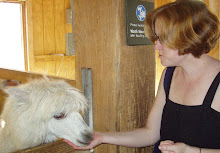If Harry Potter has taught me anything it is that selling the premise is the most important thing in storytelling.
No, you won't find any spoilers about the Deathly Hallows in here so it is safe to read on.
A multitude of literary sins can be forgiven if you can do two things. The first is to believably construct the premise of the story. The second is to avoid betraying that construct. That's it. The key is not in gags, one-liners or even artfully turned phrases. It is the framework and adherence to that framework that matters. As my teachers used to say, "Within form there is freedom!". That, my friends, is the ultimate truth.
We cannot create in chaos. We crave order, outline and form. Pathways are important. They need not always be linear, but they do need to exist. Creation is the process of order- putting details in their proper places for a purpose. The purpose is usually to entertain, but if you go just slightly deeper than that you will find the desire to place the Universe in a context that can be understood. Ah, but if I go any further I will start sounding like that jackass Aristotle. (I'm joking Aristotle! I'm joking! Don't get your toga in a knot!)
So, if I am to look at literary creation from a constructive, as opposed to deconstructive, perspective I would need to consider the world in which my journey would take place. Now, here's the question, how does one construct the literary framework that will provide enough structure to sell the premise of the story without over constructing it so as to squelch all creative discovery? How do you give yourself enough room to surprise yourself and learn something new while still giving form and shape to the general premise? How do you know when you have it just right?
I was trying ot explain to my husband some of the finer points of the seventh Harry Potter book (which I know he will never read so I am free to spoil things all I want) and found myself flitting from book to book to make some of the things from the seventh book make sense to him. I can't help but marvel at the framework that Rowling has created even if I have found her phrasing to be tiresome and repetitive at times. That repetition is forgivable, in my estimation, because the structure of the tale is so well done and she never betrays her characters or her boundaries. Truth be told, she could have written complete crap and I'd never know it because I've become so invested in the series, the characters and the outcome of the circumstances. I've bought the premise and she could pull me to the ends of the earth and I would go willingly because she has earned my trust.
As a reader I am like a skittish little squirrel (I can't imagine I'm the only one!) and I can be scared off by formless storytelling. Betray the characters for the convenience of the story and I will rail against you like a New York City pigeon at the old lady who has just run out of bread crumbs. So I am beginning to think that my focus in my own work should be on the framework. On the beginning. I've got to sell the premise.
And I maybe should stay away from metaphors for a while...
Sunday, July 22, 2007
Subscribe to:
Post Comments (Atom)



No comments:
Post a Comment